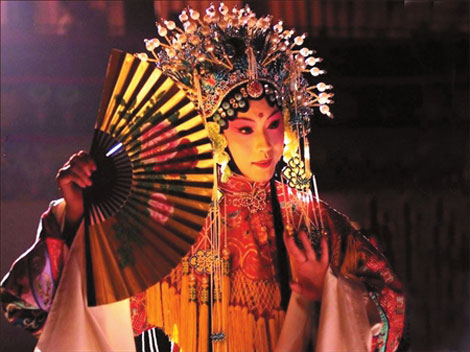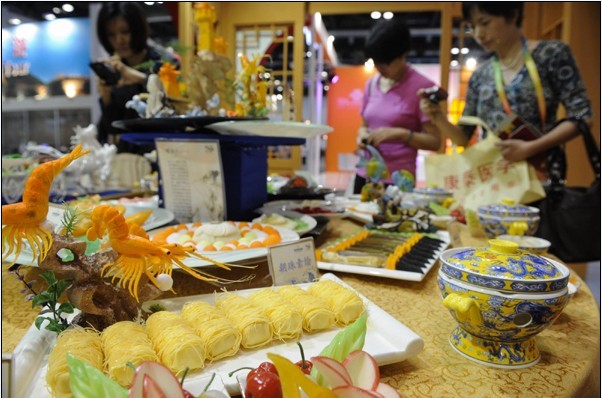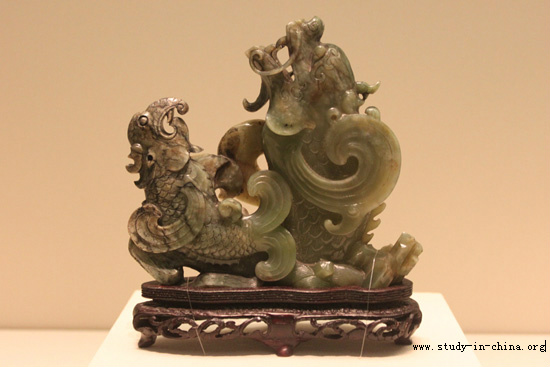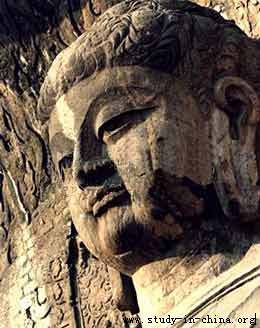| Home > China Feature |
Yueju Opera - China's Youngest

China's youngest "old" opera, Yueju Opera becomes a fixture on China's cultural landscape, though Yueju Opera differs radically from all other Chinese opera forms.
Yueju Opera (alternatively, Yue Opera) came into being in 1906 on the origins of a much older (800 years old, circa) opera tradition that called itself Luodi Changshu Diao and which was popular in the city of Shaoxing in present-day Shengzian County, Zhejiang Province (Luodi Changshu Diao is sometimes also referred to as Shaoxing Opera, and occasionally as Shaoxing Clapper Opera, due to the opera's use of sandalwood clappers, which, together with drums, created the original opera's simple "didu" music). The most impressive fact about Yue Opera is that it has become the second-largest opera form in China, after Peking Opera, though maintaining such a prominent position is a constant struggle.
Initially, Yueju Opera was composed of males only, i.e., all female roles were performed by males. Today, the inverse applies: Yueju Opera is composed strictly of females, with male roles being performed by females. The songs of Yueju Opera are soft and melodious, and delivered in a restrained, refined style. The opera, which continues to adapt to modern influences in order to remain relevant to its evolving audiences, reformed itself in the 1950s, incorporating elements of drama, kunqu, and even Western music.
The earlier sketchy plays which were only loosely constructed (the actors ad-libbed within the rough outline of the sketch) were replaced by standard plays with detailed scripts and with a director to manage the rehearsals and stage the finished product. In 1938 women actors replaced the all-male crew, and special costumes harking back to Chinese opera's traditional past were introduced, albeit, together with modern stage settings, lighting, and orchestral arrangements often played on Western musical instruments. All of these diverse initiatives have helped to make Yueju Opera popular with both Chinese audiences as well as with tourists and official visitiors.
As of 2005 there were 112 private Yueju opera troupes registered in Shengzhou, the original and current hometown of Yueju Opera. These troupes give some 36,000 performances each year, including road performances. However, it is generally recognized that if Yueju Opera had not left Shengzhou in search of work opportunites in nearby Shanghai, Yueju Opera would either have disappeared altogether, or would have been reduced to a small, countryside opera. The artistic challenges and opportunities that a major metropolis like Shanghai offered the Yueju opera troupes at the time transformed Yueju Opera into the vibrant and resilient opera form that lovers of Yueju Opera enjoy today.
Art
 more
moreChina Beijing International Diet ...
Recently, The hit CCTV documentary, A Bite of China, shown at 10:40 ...

Exhibition of Ancient Chinese Jad...
At least 8,000 years ago, Chinese ancestors discovered a beautiful...

Longmen Grottoes
The Longmen Grottoes, located near Luoyang, Henan Province, are a tr...

Custom
 more
moreWeb Dictionary
Martial Arts
Tai Chi Master Class Held in Moscow
MOSCOW, June 15, 2016 (Xinhua) -- Students learn from Shaolin ...
Celebriting 70 years' efforts in restoring Mogao...
Work is being carried out at the restoration site of cave No 98 a...
Hong Kong Children's Symphony performs in Seattle
Under the theme of Tribute to the Golden Age, a concert featuring a ...





 print
print  email
email  Favorite
Favorite  Transtlate
Transtlate 








